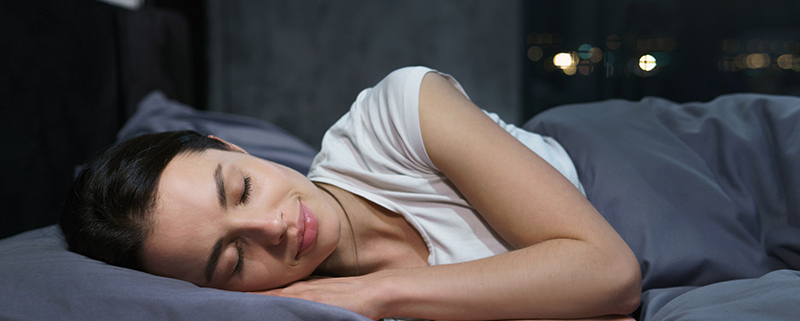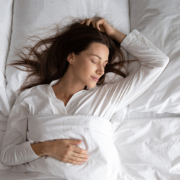Natural sleep
When the season changes and the days become longer, sleep-wake rhythm disorders may appear or become more evident. Insufficient or disturbed sleep triggers a series of negative phenomena: dropped performance levels, reduced concentration, compromised collaboration and harmony with family members and colleagues, less social contact, and on the other hand a higher risk of accidents, greater personal fragility, and a higher risk of falls, especially in the elderly. If sleep disorders persist, they can lead to an increased tendency for obesity, high blood pressure, diabetes, depression, and cancer.
Light-darkness and sleep disorders
One of the reasons for altered and disturbed sleep is the continuous presence of blue light. The presence of light during the night inhibits the production of melatonin, the hormone that helps regulate our sleep-wake rhythm. In particular, we are much more sensitive to blue light, which is the type that makes the sun brighter at midday, and even the monitor of our PC, but which can also disturb our sleep-wake rhythm. Nowadays, big cities are often lit up with LED lights. Although more economically efficient, they also produce a lot of blue light, which is more harmful to sleep. It is therefore clear that light sources need to be designed to minimise the negative consequences on our health.
Melatonin
The guardian of sleep is melatonin, the super hormone produced in the pineal gland, located in the centre of the brain. Its strategic position guides and coordinates certain essential vital rhythms, in particular that of the alternation between sleep and wakefulness.
Sleep-friendly plants
Certain medicinal plants can aid the process of falling asleep, reduce or eliminate night-time and early morning awakenings, increase the total amount of sleep while respecting physiological sleep, all without compromising the state of wakefulness, mental clarity, and daily performance levels. In particular, eschscholzia is suitable for stressed people, constantly on the defensive; red poppy induces sleep; passionflower is ideal for those who are anxious and depressed; valerian makes it easier to fall asleep; hawthorn protects the heart; lemon balm restores the balance of the autonomic nervous system; linden relieves tension.
Medicinal plants are commonly used to stop sleep disorders from persisting. In general, to promote normal sleep, it is recommended to take the selected preparation not only in the evening before going to bed, but also in the morning and afternoon, especially in the case of sleep disorders due to tension, irritability, anxiety, and stress. In certain cases of disturbed sleep, it takes 3-4 days for the effects of the facilitating action to be felt.

 Specchiasol
Specchiasol Specchiasol
Specchiasol Specchiasol
Specchiasol Specchiasol
Specchiasol Specchiasol
Specchiasol Specchiasol
Specchiasol Specchiasol
Specchiasol Specchiasol
Specchiasol



 Specchiasol
Specchiasol Specchiasol
Specchiasol